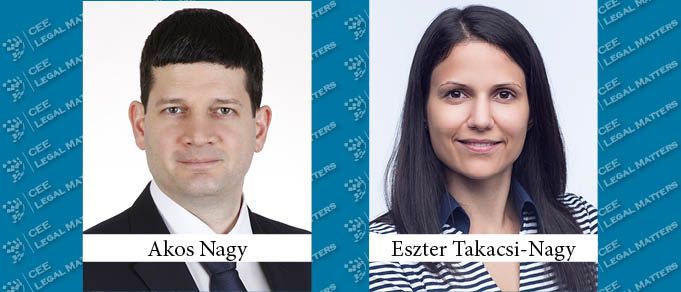The worldwide legal marijuana trade has grown significantly in recent years. According to some sources, the United States accounts for a global market share of 90 percent of all legal marijuana traded.
Although the global legal marijuana trade is projected to increase, the use of cannabis is still a highly controversial topic in the CEE region. In several CEE countries, such as the Czech Republic, Bulgaria, and Romania, production and use of medical cannabis is allowed, although it is strictly regulated. However, in some other countries in the region – in particular, in Slovakia, Hungary, and Serbia – the use of marijuana is still under debate.
As opposed to medical cannabis, there is a greater understanding across Europe regarding industrial cannabis (industrial hemp), especially regarding the use of cannabidiol (CBD), which is one of a class of chemical compounds known as cannabinoids that are inherent in the cannabis plant. CBD is not known to cause psychoactive effects, unlike cannabinoid tetrahydrocannabinol (THC), which is the primary psychoactive compound in marijuana.
While scientific research carried out over the past few years has confirmed significant therapeutic attributes of both compounds, unlike THC, CBD does not make a person feel intoxicated. It is considered a non-addictive substance that alleviates pain and certain symptoms of disorders such as epilepsy, while also potentially mitigating the side effects of chemotherapy.
While THC’s benefits remain the subject of strong debate, the focus has shifted to CBD. Currently, a wide range of products containing CBD, including cosmetics and food supplements, has become available on markets around the world. As a result of what are believed to be CBD’s positive effects on the human body, a great deal of interest has been expressed in this industry.
Hungarian Regulatory Background and Practicalities
Hungarian law defines “cannabis” as any flower or branch of the cannabis plant (apart from the seeds) whose resin has not been extracted yet. In accordance with the International Convention on Narcotic Drugs (1961), cannabis and its derivatives (cannabis resin, extracts, and tinctures of cannabis) are considered to be narcotics in Hungary, and the cultivation, use, distribution, and any other activities related to cannabis are strictly regulated in Hungary.
The main Hungarian regulatory authority regarding cannabis-related activities is the National Institute of Pharmacy and Nutrition, at which notifications are made and licences are obtained. Other authorities (e.g., the National Food Chain Safety Office) may also have competence depending on the contemplated activities, as well as the nature and intended purpose of the end product. As there is a detailed regulatory framework applicable to cannabis-related activities in Hungary, notification and licensing requirements need to be examined on a case-by-case basis, taking into account all business, legal, and technical details and the circumstances of the contemplated cannabis-related activities.
Under Hungarian law, a distinction is made between “low-THC content hemp” and “high-THC content hemp,” with “hemp” being defined as all plants of the genus Cannabis. Low-THC content hemp means fibre hemp and seed hemp belonging to the so-called “Cannabis sativa L. Species” with THC content (de facto or according to the results of the relevant examination) of less than 0.2 percent, not including roots and stems, in an air-dried, homogenized state. High-THC content hemp means any type of hemp that does not qualify as low-THC content hemp, i.e., with THC content exceeding 0.2 percent in the same parts of the plant.
In order to carry out any cannabis-related activities (i.e., with both low and high THC content hemp) in Hungary, detailed notification and licensing requirements must be complied with. The extent of these requirements depends primarily on the following factors: (i) the THC content of the hemp and the end product to be produced from the hemp; (ii) the contemplated activities to be carried out in Hungary (manufacturing, export, import, transfer, distribution, research, etc.); (iii) the extraction method used during the manufacturing process (e.g. simple cold pressing or supercritical CO2 extraction); (iv) contents of the end product; and (v) the nature and intended use of the end product (e.g. cosmetics, food supplements).
By Akos Nagy, Partner, Eszter Takacsi-Nagy, Associate, and Bianka Pandur, Junior Associate, Kinstellar Budapest
This Article was originally published in Issue 6.6 of the CEE Legal Matters Magazine. If you would like to receive a hard copy of the magazine, you can subscribe here.




